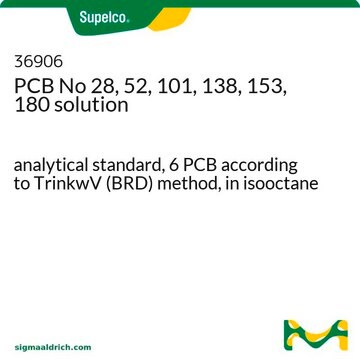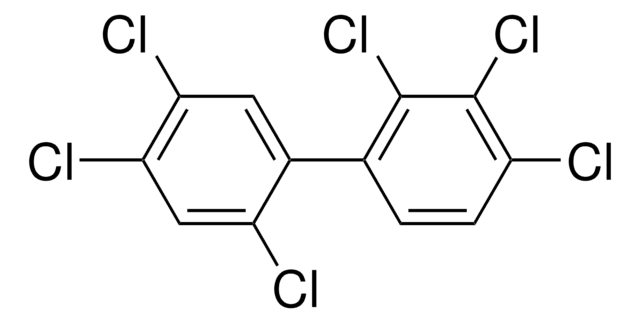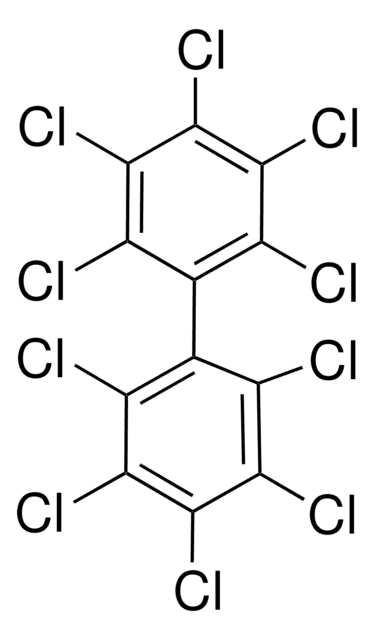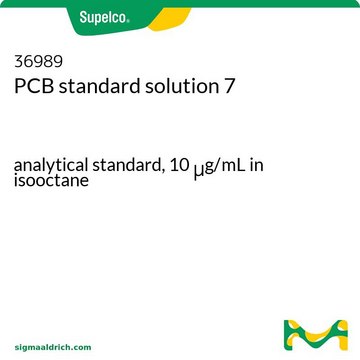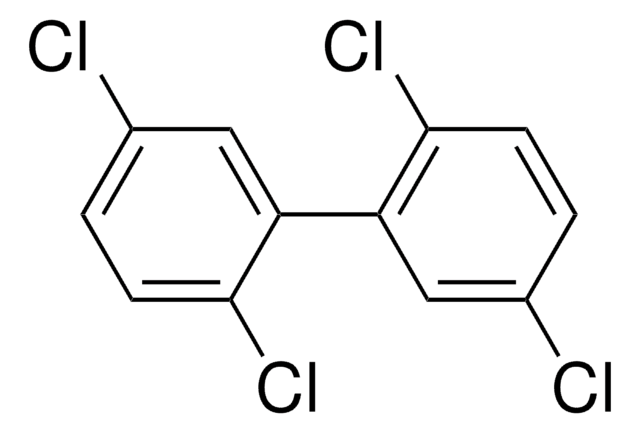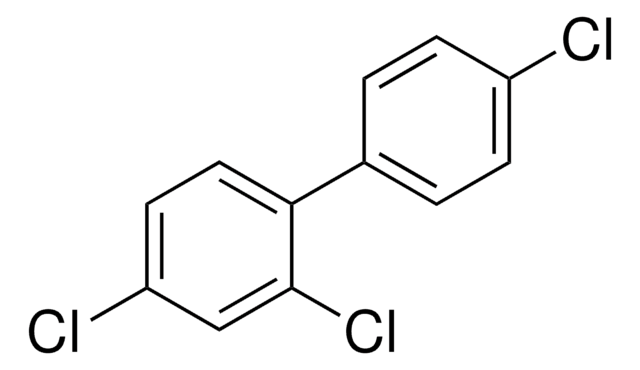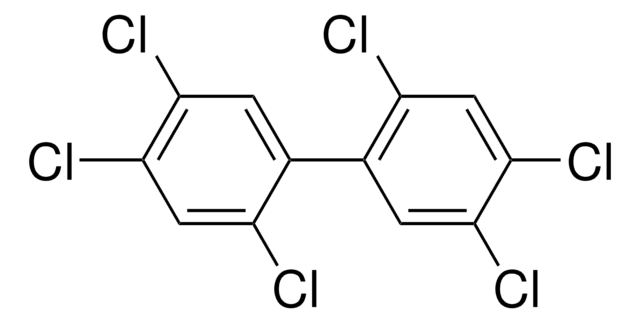36903
PCB No 138 solution
10 μg/mL in isooctane, analytical standard
Sinónimos:
2,2′,3,4,4′,5′-Hexachlorobiphenyl solution, 2,2′,3,4,4′,5′-PCB
About This Item
Productos recomendados
grade
analytical standard
Quality Level
shelf life
limited shelf life, expiry date on the label
concentration
10 μg/mL in isooctane
technique(s)
HPLC: suitable
gas chromatography (GC): suitable
application(s)
environmental
format
single component solution
storage temp.
2-8°C
SMILES string
Clc1ccc(c(Cl)c1Cl)-c2cc(Cl)c(Cl)cc2Cl
InChI
1S/C12H4Cl6/c13-7-2-1-5(11(17)12(7)18)6-3-9(15)10(16)4-8(6)14/h1-4H
InChI key
RPUMZMSNLZHIGZ-UHFFFAOYSA-N
Application
signalword
Danger
hcodes
Hazard Classifications
Aquatic Acute 1 - Aquatic Chronic 1 - Asp. Tox. 1 - Flam. Liq. 2 - Skin Irrit. 2 - STOT SE 3
target_organs
Central nervous system
Storage Class
3 - Flammable liquids
wgk_germany
WGK 2
flash_point_f
10.4 °F - closed cup
flash_point_c
-12 °C - closed cup
ppe
Eyeshields, Faceshields, Gloves, type ABEK (EN14387) respirator filter
Elija entre una de las versiones más recientes:
¿Ya tiene este producto?
Encuentre la documentación para los productos que ha comprado recientemente en la Biblioteca de documentos.
Nuestro equipo de científicos tiene experiencia en todas las áreas de investigación: Ciencias de la vida, Ciencia de los materiales, Síntesis química, Cromatografía, Analítica y muchas otras.
Póngase en contacto con el Servicio técnico